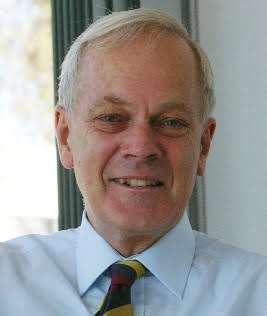Interests
Professor Anderson’s research interests have spanned many topics in circuits, signal processing and control, and currently his work focuses on distributed control of multiagent systems, localization, social networks, and control aspects of epidemics. A full publication list can be viewed here.
Research
A starting question in studying formations of unmanned airborne vehicles is: if a formation is required to maintain a certain shape - a common requirement as it turns out - who should measure what, who should control what, and who should communicate what and to whom? And if the formation is also required to transit from A to B, can this be done with a single command to a single UAV in the formation? Subsidiary questions include: how can the functionality of the formation be maintained if a vehicle fails, or a communication link fails? How can functionality be obtained when one UAV can measure the bearing but not the range of another UAV, or vice versa?
I am focusing on the principles governing the control and use of formations of unmanned airborne vehicles, including more recently low earth orbiting satellites. Much of my work is on particular problems suggested by the Defence Science and Technology Group.
Biography
Professor Anderson has served as a member of a number of government bodies, including the Australian Science and Technology Council and the Prime Minister’s Science, Engineering and Innovation Council. He was a member of the Board of Cochlear Limited, the world’s major supplier of cochlear implants, from 1995 to 2005. He is a Fellow of the Australian Academy of Science and Academy of Technological Sciences and Engineering, the Institute of Electrical and Electronic Engineers, and an Honorary Fellow of the Institution of Engineers, Australia. In 1989, he became a Fellow of the Royal Society, London, and in 2002 a Foreign Member of the US National Academy of Engineering. He holds honorary doctorates of the Catholic University of Louvain in Belgium, the Swiss Federal Institute of Technology, and five Australian Universities He was appointed an Officer of the Order of Australia in 1993 and made a Companion in 2016. He received the Japanese Order of the Rising Sun with Neck Ribbon and Gold Rays in 2007.
He was President of the International Federation of Automatic Control for the triennium 1990 to 1993, and served as President of the Australian Academy of Science for four years from 1998 to 2002. For more information, please see this website.
Activities & Awards
For a full list of awards, please follow this link.
